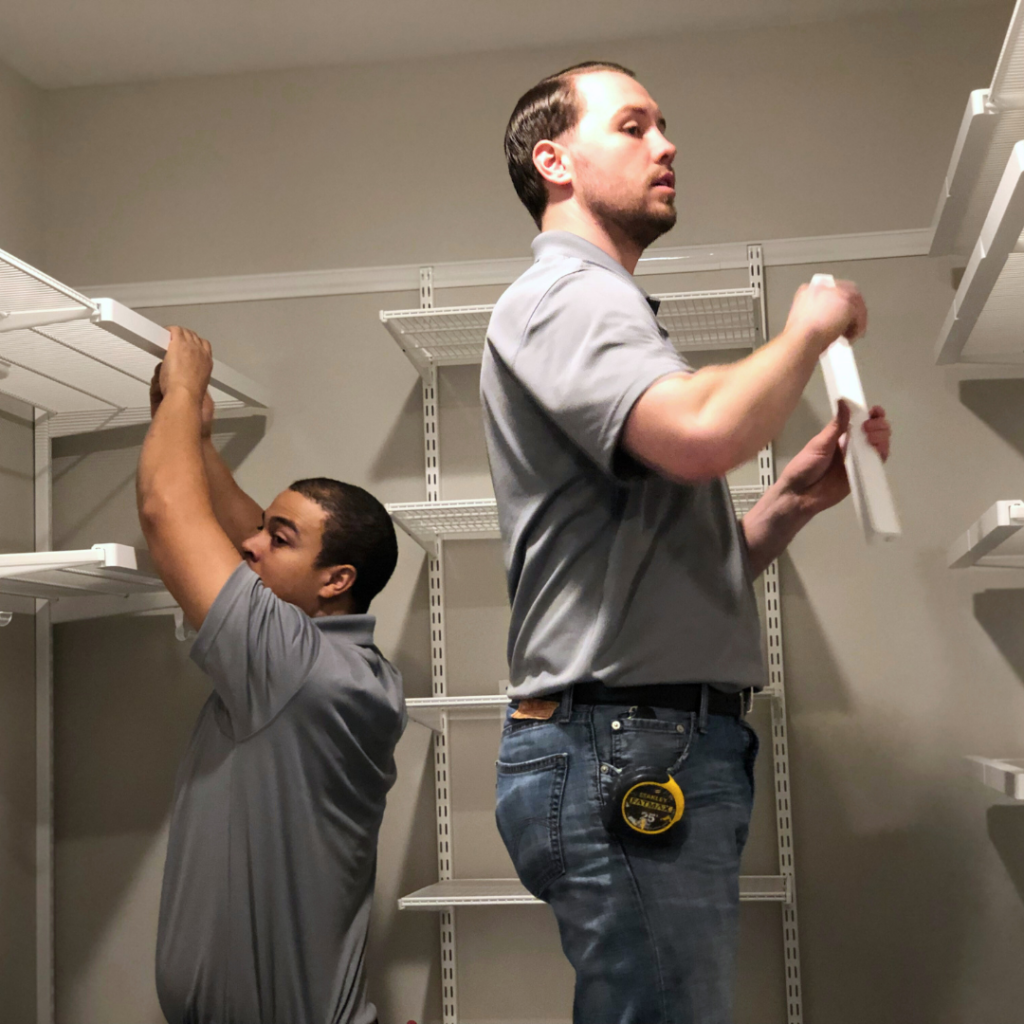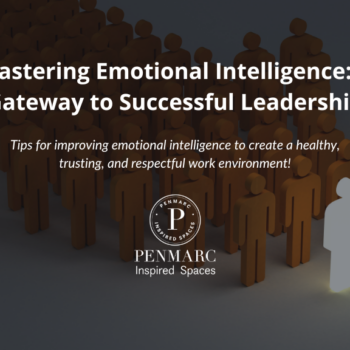When thinking about what harbors success in our industry of in-home installations, technical skills, and craftsmanship are often deemed essential. However, another frequently overlooked and crucial skill plays a pivotal role in the effectiveness of your work and your relationship with your clients. That skill is emotional intelligence.
Emotional intelligence refers to our ability to understand and manage our emotions while recognizing and positively influencing others’ emotions.
While it may not seem directly relevant to closet installation, emotional intelligence plays a huge role in building strong connections with clients and leading teams effectively.
Here are some benefits of emotional intelligence and strategies to help improve this skill.
Benefits of Emotional Intelligence
Builds trust and promotes healthier communication
Emotional intelligence helps to establish trust with clients by demonstrating empathy, active listening, and understanding of their needs. By fostering open and effective communication, you can enhance any client experience. Attune to nonverbal cues, try anticipating client needs and provide tailored solutions when necessary.
Improves accountability
Emotional intelligence helps people take responsibility for their actions, maintain integrity, and hold themselves accountable. When you hold yourself accountable, you will quickly see an increase in the quality of your work, and others will notice your efforts.
Alleviates stress and defuses conflict
The industry of in-home installations often involves high-pressure situations and occasional conflicts. Emotional intelligence equips you with the skills and mindset needed to manage your stress and composure, and it will help you resolve any potential issues calmly and constructively.

Key Components of Emotional Intelligence

Self-awareness and management
Recognizing and controlling your emotions and understanding their impact on yourself and others is vital. Positivity is contagious, and by understanding yourself, you can foster a beneficial team dynamic that brings out the best in others. But not every situation will be easy. Managing emotions in difficult situations and maintaining a positive outlook are crucial. To do so, you must stay grounded, not let emotions dictate actions, and persevere through challenges.
Social awareness
Actively observe others’ emotions and determine whether or not their effect on the organization benefits the team. If you can tell through nonverbal cues that a teammate isn’t in a positive mindset, be supportive! Engage in rapport, demonstrate that you care, and show empathy. These are all crucial aspects of social awareness and will do nothing but help bring your team closer together.
Relationship management
Effectively resolving conflicts, influencing, coaching, and mentoring others are integral to the relationship management puzzle. Managing and maintaining healthy working relationships with your team involves direct and honest communication, investing in others’ development, and fostering a cohesive team environment.
Ways You Can Develop Emotional Intelligence
Active listening and observation
Pay attention to those around you and listen more than you speak. By observing others’ responses, you can gauge the impact of your actions and adjust accordingly. Pause before responding, say no when necessary, and develop self-discipline to manage emotions effectively.
Take responsibility for your actions
Taking responsibility for your actions involves cultivating integrity and owning up to mistakes. Doing so builds trust among coworkers and clients. For example, if you overlook an important detail on a project, you should acknowledge the error, discuss it openly with the team, and work together to find a solution. Similarly, in client-involved situations, taking responsibility means addressing any errors and miscommunications promptly and transparently. By taking ownership, you demonstrate professionalism and a commitment to personal growth, contributing to a positive work environment and the team’s overall success.
Self-assessment
Always seek feedback from your manager and colleagues. Seeking feedback from your peers shows your team that you are committed to growth and willing to make corrections for the company’s benefit. Compare any feedback you receive from peers to the feedback you would give yourself, and identify areas needing improvement.

Emotional intelligence is a powerful tool that complements technical skills and craftsmanship. By developing emotional intelligence, you can build trust, improve your communication with clients, and make a lasting, positive impact in your industry.
Remember, success in our industry is not solely determined by technical prowess but also by the ability to understand and connect with others on an emotional level.
Invest in developing your emotional intelligence, and you’ll pave the way for a rewarding and prosperous career.
Written by Callie Houck
To learn more about Penmarc Inspired Spaces and what we’re all about, click the link below!


